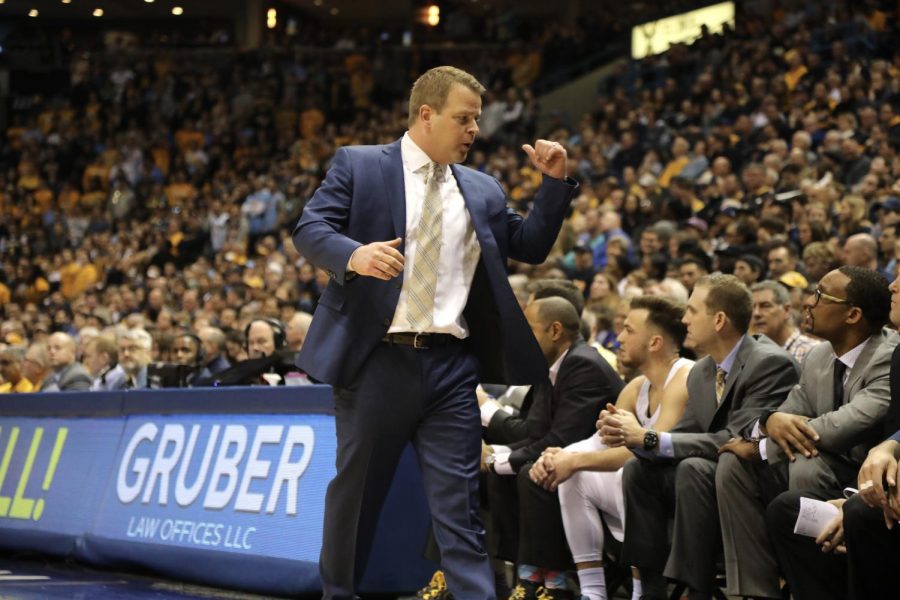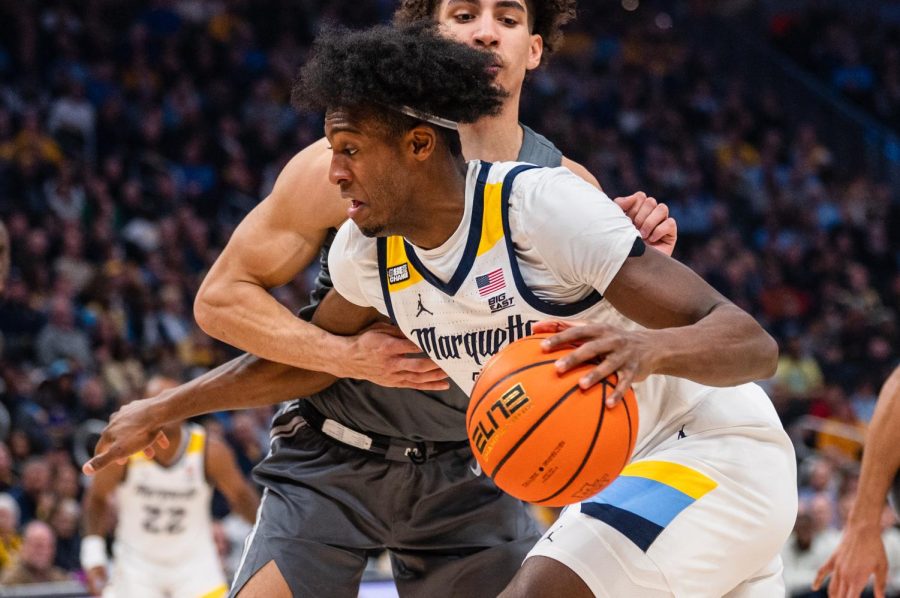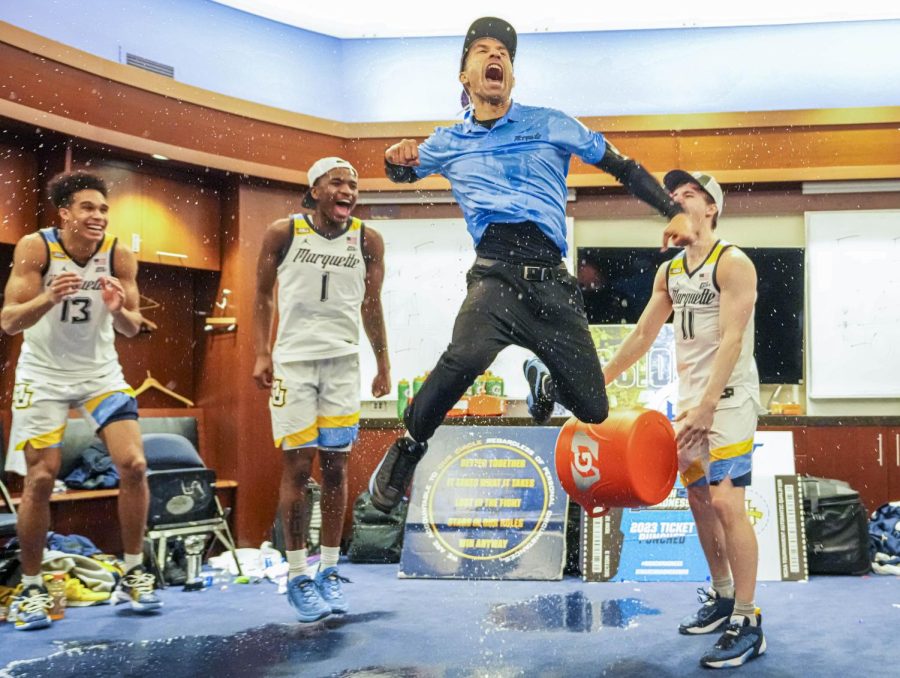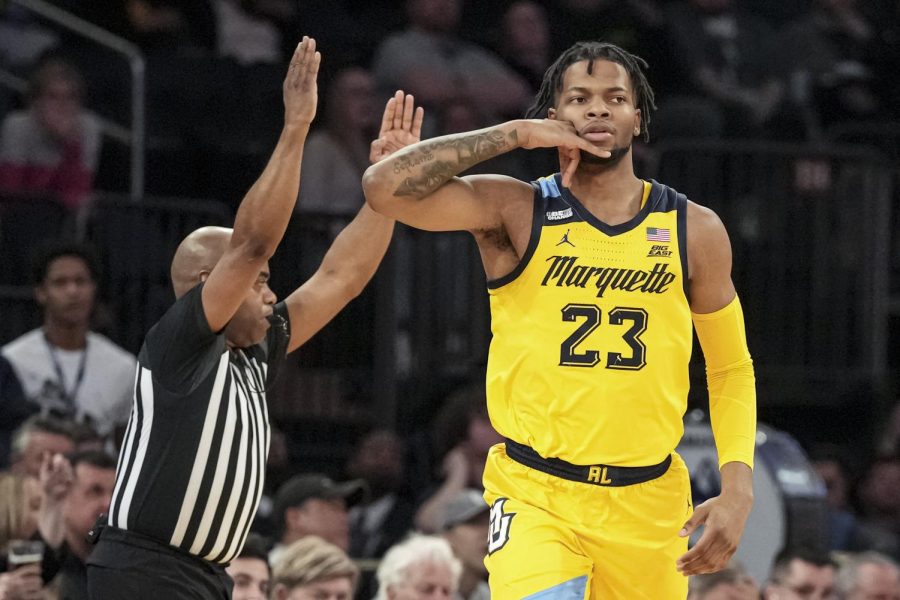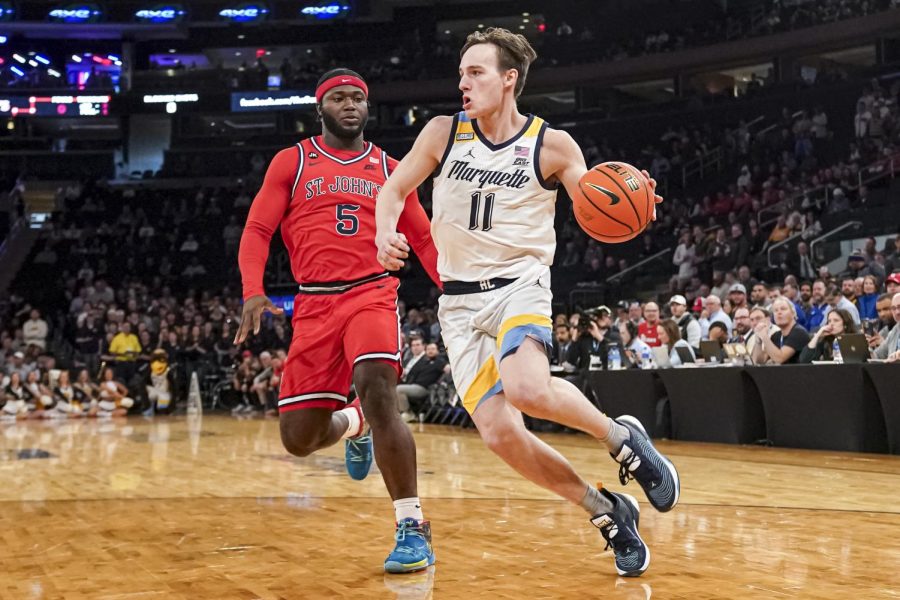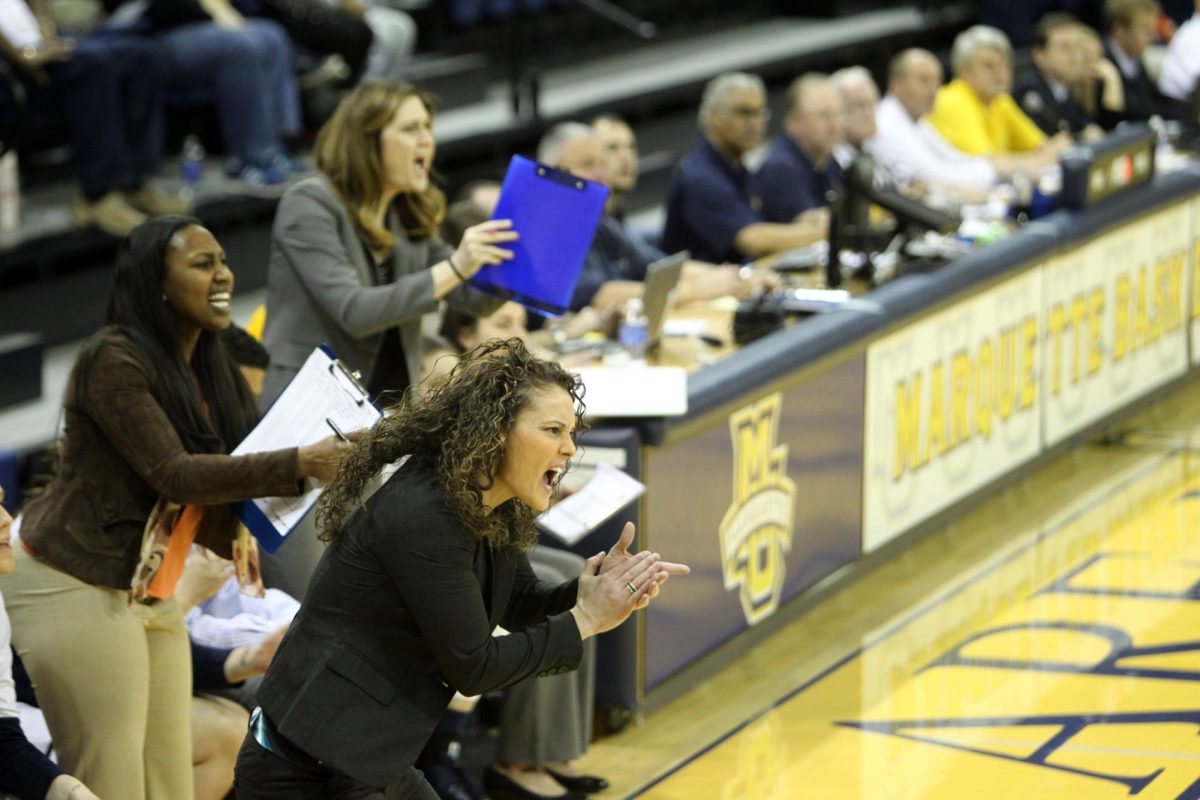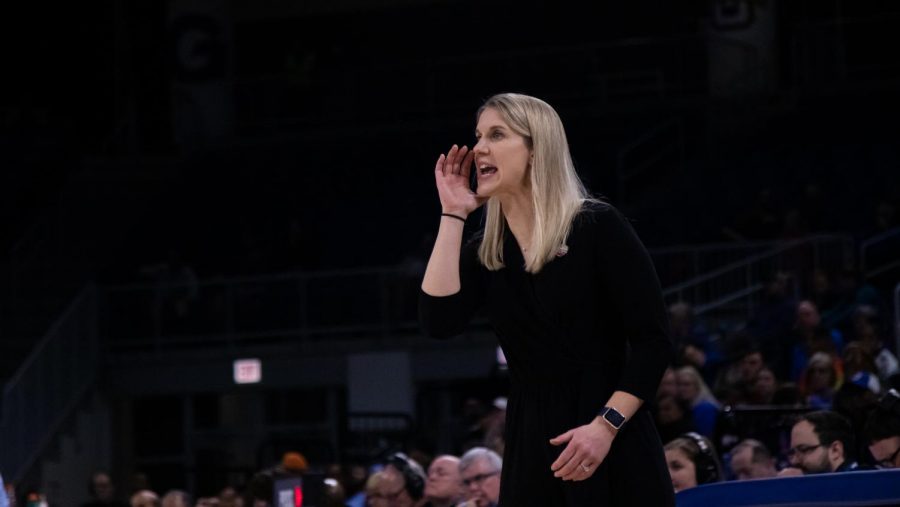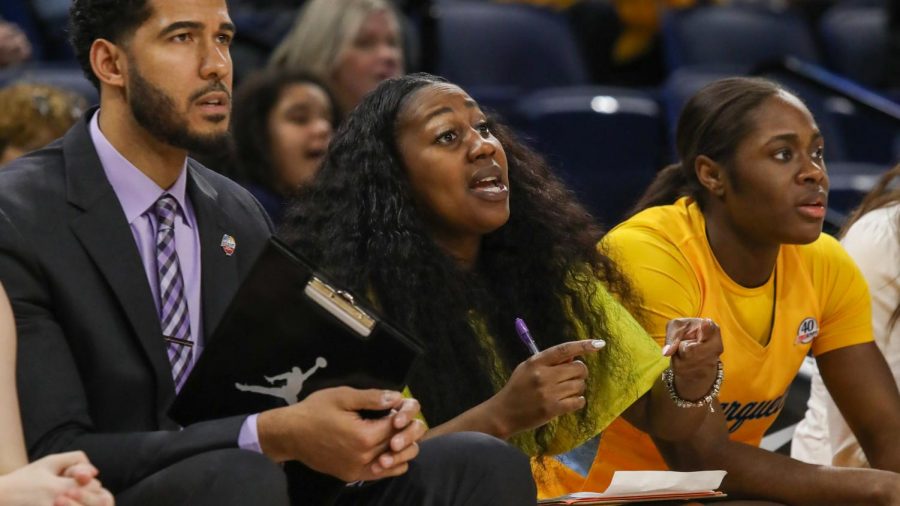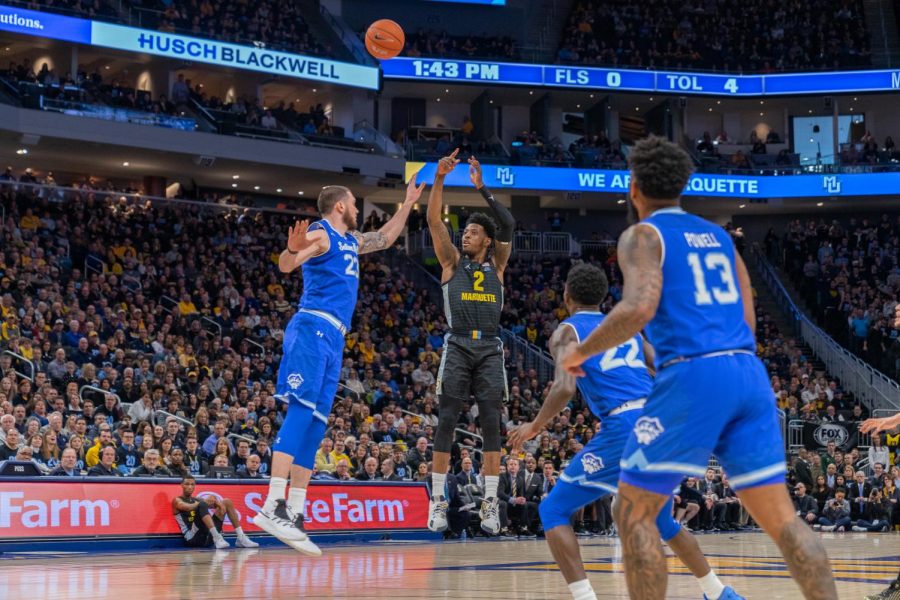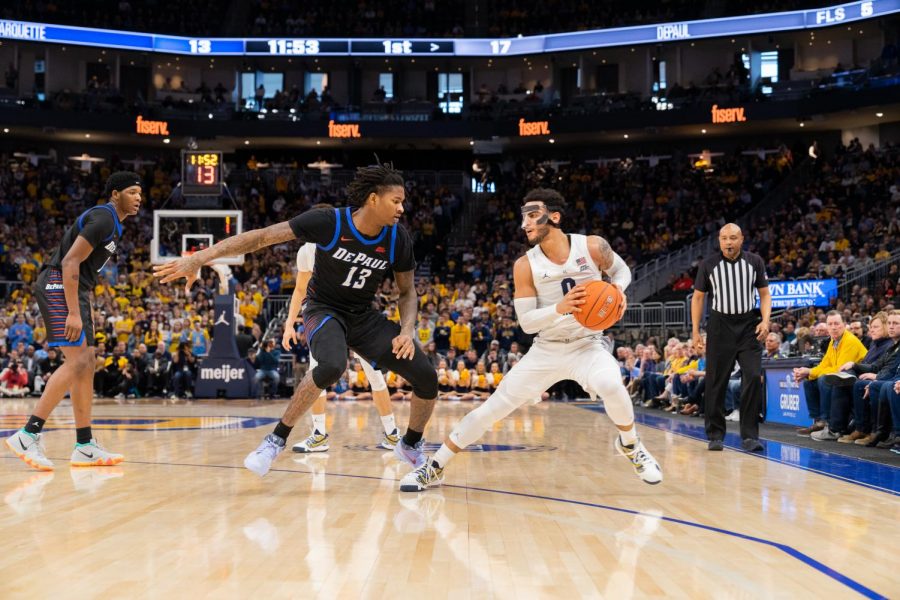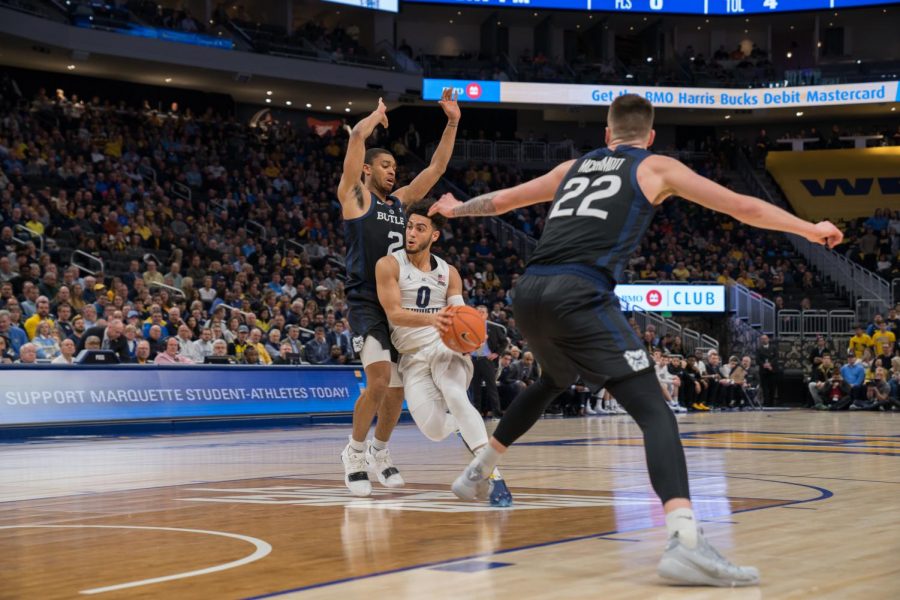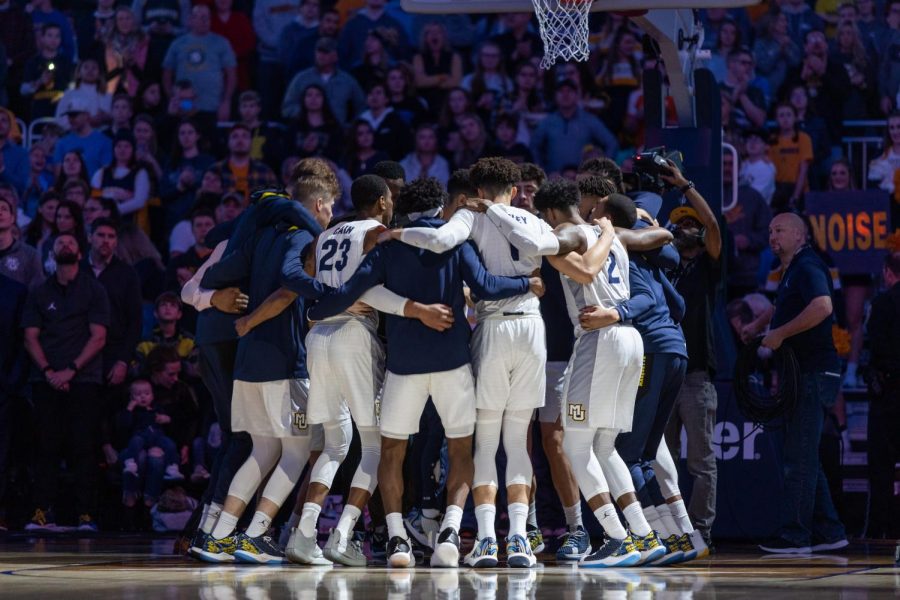There’s one thing Marquette head coach Steve Wojciechowski knows he doesn’t want to do until he is retired from college basketball — wear a live microphone throughout a game.
“I’m just a little more old-school, and I don’t have such a good vocabulary at times,” Wojo said referring to his profane language. “It’s not for me … At some point, I’ll have to do it. Hopefully, it’s not until I’m coaching CYO (Catholic Youth Organization) basketball 22 years down the road.”
Wojo could be one of the only holdouts fairly soon. The BIG EAST and television partner FOX Sports are gradually implementing live microphones on coaches to differentiate both the network and conference in a highly competitive fight for television ratings.
Instead of a traditional broadcast with two announcers and commercial breaks at every media timeout, the miked-up games were commercial-free and allowed fans to hear both coaches live throughout the game. A five-second tape delay allowed the network to cut any profanity.
“We’ve been able to give basketball fans something that they’ve never had before,” BIG EAST associate commissioner John Paquette said. “Which is commercial-free during the game, live mics … On the FOX Sports Go app, you could choose a coach (to listen to) if you wanted to.”
The test began last year with a women’s basketball game between Seton Hall and St. John’s, which the network and conference chalked up as a success.
“FOX and the BIG EAST — we both thought it went well and was successful,” Paquette said. “The next step was to do it for a men’s game.”
That next step happened this year with a men’s basketball game between Providence and DePaul a few weeks ago, which Providence won 71-64.
“You have to find two coaches who are going to agree to do it,” Paquette said. “And we found (Providence head coach) Ed Cooley and (DePaul head coach) Dave Leitao.”
The trial run last year made the transition relatively easy from a technical standpoint.
“There weren’t too many technical challenges because we had done it before for a women’s game,” Paquette said. “It’s still a basketball game. You’re still looking at the same things.”
But from a coaching standpoint, wearing a microphone adds another level of challenges. “It’s obviously very difficult to do the first time we did it,” Cooley said.
Coaches are used to projecting their message to up to 13 scholarship players, not thousands of viewers on a live television broadcast. It adds more complexity to the coaching strategy.
“When you’re coaching (normally), you don’t have a microphone on,” Leitao said. “You don’t want to say anything (into a microphone) that can be misconstrued as negative against a player or opponent or referee or anything like that. That provided a sidebar to the normal way you’d coach during the middle of a game.”
It also adds a distraction from the game itself, which is another reason Wojo is hesitant to put on a live microphone.
“Sometimes when you add those things, it can be a distraction, whether it’s intended to or not,” Wojo said.
“You forget it’s on because at the end of the day it is about winning and trying to position your team to win,” Cooley said. “It was very challenging, but at the same time, I’m glad I did it.”
Paquette expects FOX Sports and the BIG EAST to make a joint decision on next year’s implementation of the miked-up games in spring meetings after the college basketball season concludes. The coaches have mixed feelings about seeing it return.
“Would we do it again? I don’t know, but it’s something that’s definitely a challenge for the other coaches that are going to attempt to do it,” Cooley said. “It’s not the worst thing. There are some things that could be cleaned up where it’s not 100 percent access.”
There is one coach on campus that showed a willingness to participate in a miked-up game: women’s basketball head coach Carolyn Kieger.
“I think it’s great for the fans to get a different perspective,” Kieger said. “Anything to drive TV ratings. I’m all about what we can do for the sport.”
Even with the excitement generated by these games, Wojo can afford be “old school” for a bit longer if he wants to.
“I don’t think we would ever require the coach to do this,” Paquette said. “That’s just my opinion, but I don’t think we would do that. It’s certainly different asking any coach to be on a microphone for a home game.”

